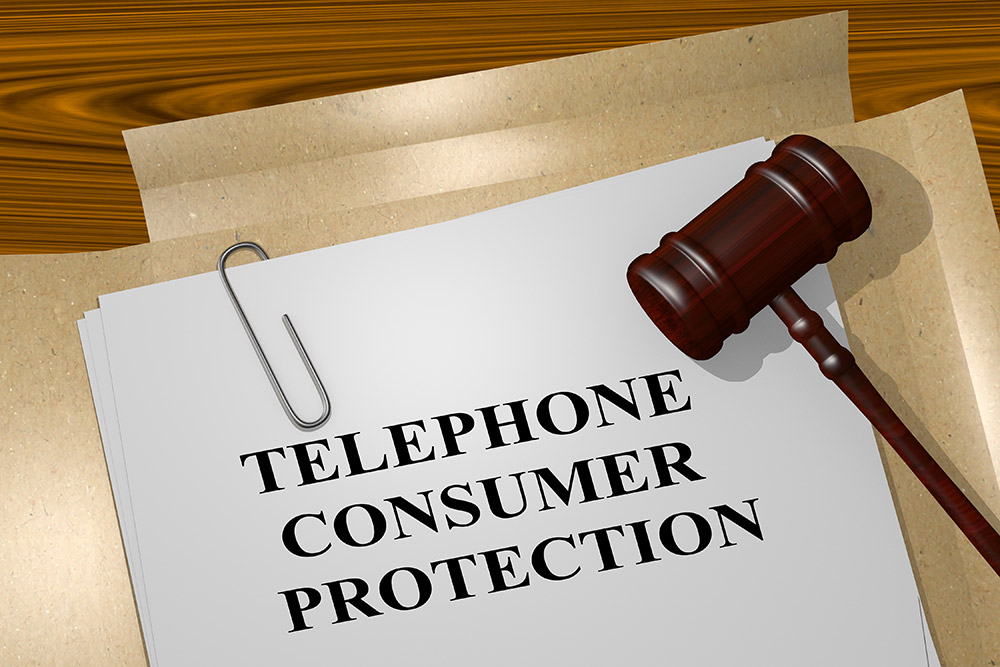TCPA Wireless Compliance Cliff: Lessons Learned One Year Later
One year ago today, significant TCPA changes involving cell phones and autodialers went into effect, forever changing our industry. So, what is the state of the regulatory environment one year after the TCPA compliance cliff?
TCPA Litigation & Professional Plaintiff’s
There has been a significant increase in TCPA lawsuits over the last year. Sources report that there have been at least 1714 TCPA lawsuits from January 1 through August 31 of this year. That is over a 31% increase from the same period last year, which only saw approximately 1,175 such lawsuits.
In a survey conducted during a recent DNC.com webinar, approximately 30% of the participants who responded indicated that their business had been targeted by a TCPA litigator. Of the 188 TCPA lawsuits filed this year to date, about 6% were class actions, a growing trend.
Further, a significant portion of these lawsuits are brought by private, professional plaintiffs – individuals who make a living suing telemarketers. In fact, 29% of the consumers who filed TCPA suits in August of this year have brought similar litigation in the past. Many of these private plaintiffs take affirmative steps to make it more likely that they will receive autodialed calls, including by changing their telephone numbers, buying large blocks of numbers, and by leaving their numbers off of the national DNC list.
VoIP
There is growing concern about calls made to VoIP users. The TCPA autodialer restrictions not only protect cell phones, but also “any telephone number assigned to a paging service, cellular telephone service, specialized mobile radio service, or other radio common carrier service, or any service for which the called party is charged for the call.”
The Fourth Circuit recently upheld a lower court’s grant of summary judgment finding that calls to a plaintiff’s VoIP line for which he was charged violated the TCPA. Adding to this concern is the fact that at the present time there is no full proof way to identify all VoIP lines. That said, significant efforts should be made to remove as many known VoIP lines as possible from autodialer calling lists.
Big Brands and Monster Settlements
TCPA plaintiffs love to go after big companies with deep pockets. A few of the larger TCPA settlements in the last year include:
• In Re: Capital One TCPA Litigation, No. 1:12-cv-10064 (N.D. Ill.)
Settlement: $75.5 million.
Date: July 29, 2014 (Preliminary Approval)
• Benzoin v. Vivint Home Security, Inc., No. 12-cv-61826 (S.D. Fla.)
Settlement: $6 million
Date: June 9, 2014 (Preliminary Approval)
• Rose v Bank of America, No. 11-cv-2390 (N.D. Cal.)
Settlement: $32 million
Date: April 4, 2014 (Final Approval Hearing)
• Steinfeld v. Discover Financial Services, et al., No. 3:12-cv-1118 (C.D. Cal.)
Settlement: $8.7 million
Date: March 31, 2014 (Final Approval)
These four cases alone settled for a total of over 122 million dollars.
Safe Harbor Elusive
There has been some confusion as to whether the old 15-day ported cell number safe harbor applies to the new October 16, 2013 wireless telemarketing ban. The statutory language makes it a little confusing, especially given the significant policy reasons stated in the old 2004 FCC order. As it stands, the current language makes it sounds like the 15-day safe harbor provision for ported cell phone numbers only applies to 47 CFR 64.1200 (a)(1)(iii), but not to 47 CFR 64.1200 (a)(2). Meaning, it applies to the old ban involving non-telemarketing calls, but not to the October 16, 2013 additions regarding wireless telemarketing specifically. Keep in mind that while it is possible that a regulator or a court might reach the opposite conclusion, the safest course of action is to assume that the ported safe harbor does not apply to telemarketing calls.
Until such time as this issue is clarified, callers may be well advised to scrub out wireless numbers daily, rather than once every 15 days.
Update on Recent FCC Petitions
There are now 46 petitions pending before the FCC relating to the TCPA. Common topics of these petitions include seeking clarification on prior express written consent, the definition of an autodialer and junk faxing. Among perhaps the most important of these petitions is the petition filed by PACE, which seeks clarification on the definition of an ATDS (Automatic Telephone Dialing System). In another interesting petition, ACA International is asking the FCC to establish a safe harbor for autodialed “wrong number” non-telemarketing calls to wireless numbers.
Keys to Navigating TCPA Compliance, one year after the TCPA Compliance cliff
While the task may seem daunting at times, many businesses are successfully navigating these new waters though excellent compliance practices. The key is having reliable telemarketing legal counsel and compliance technology. TCPA compliance cannot be taken lightly as compliance mistakes cost big money – much more than the expense of sound legal advice and scrub-vendor services.
Now more than ever, call centers need to aggressively identify and remove cell phones and VoIP lines from their calling lists, as well as the known numbers of TCPA plaintiffs. For legal advice regarding these issues, please visit TelemarketingLawyer.com. For excellent technical help regarding wireless identification and scrubbing for VoIP and litigator data, Contact Us for a review of your procedures.
